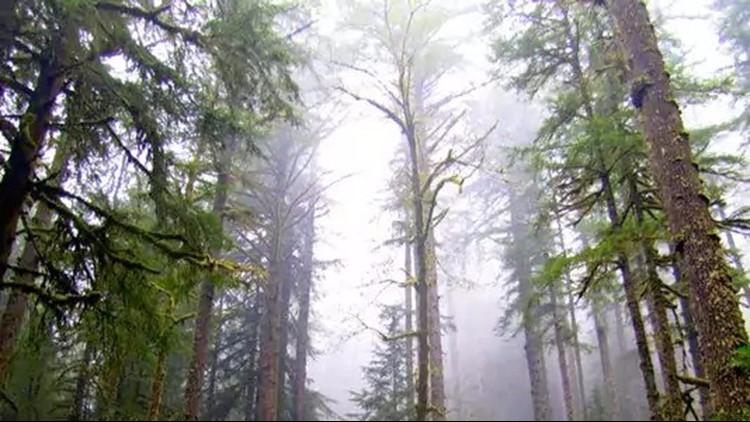The Oregon State Land Board on Tuesday ditched its plan to sell the Elliott State Forest, deciding to keep it in public hands and ordering the Department of State Lands to examine options, including selling it to Oregon State University for research while allowing timber harvesting, public access and protection of endangered species.
Supporters of a drive to keep Oregon's oldest state forest in public hands erupted in cheers after the board, composed of the state's top three elected officials, made the unanimous decision. Complicating the issue: Timber harvests from the forest fund Oregon schools, but sales have slumped in recent years because of protections for endangered species, particularly the spotted owl, marbled murrelet bird and coho salmon, causing a loss instead of a gain.
"There was a tidal wave of Oregonian support to keep the Elliott public that couldn't be held back," Cascadia Wildlands Executive Director Josh Laughlin said after the vote. "The Land Board's decisive action today was visionary."
Almost three hours of testimony by forestry experts, local citizens and the president of Oregon State University preceded the decision. Some had carried signs with slogans like "keep public lands in public hands" but left them at the entrance of the Department of State Lands building. State police stood at the entrance and were scattered among the crowd of some 150. One woman's T-shirt said: "May the forest be with you."
Just three months ago, the board voted 2-1 to sell the 82,500-acre Coastal Range forest to Lone Rock, a timber company based in Roseburg, and a partnering Indian tribe. Gov. Kate Brown, the lone dissenter at that meeting, forestalled the sale by asking the Department of State Lands to consider having the state pay the Common School Fund $100 million in state bonding and partially decouple it from the forest, protecting schools from financial vulnerability.

State Treasurer Tobias Read, who also is a board member, later agreed with Brown, and suggested Oregon State University have the option of buying the forest for research while still allowing public access and timber harvesting.
University President Edward J. Ray appeared before the board and said he loves the idea. But, he added, "I don't have $121 million lying around." Ray said timber harvesting would have to be robust enough to pay off the university's cost.
Secretary of State Dennis Richardson, another board member, said he regretted the sale didn't go through in February but recognized the forest would inevitably stay in public hands even if he voted against it. He apologized to Lone Rock and to Michael Rondeau, chief executive officer of the Cow Creek Band of Umpqua Tribe of Indians.
Rondeau testified the decision was another blow to regional tribes that had been displaced from their ancestral lands about 150 years ago.
"Our tribe is still struggling today to rebuild our culture without our homeland," Rondeau said, adding that he felt "disappointment and frustration" after the tribe worked with Lone Rock to make a proposal, sought by the land board two years ago, to buy the forest for $221 million.
Brown told Rondeau tribes could still have a role in managing forests. The Department of State Lands was directed to "continue working with sovereign tribal governments to explore ownership or additional forest management opportunities."
Jake Gibbs, director of external affairs of Lone Rock Resources, said before the vote that the company had put in a lot of work to make the proposal, fulfilling a protocol that envisioned maintaining forest and stream health, public access, job creation and other economic benefits. He said the land board's flip-flopping left the company in "an awkward spot ... some decisiveness would be helpful."
Now that the decision has been made, Richardson said he imagined Lone Rock and the tribe would seek compensation from the state.
For his part, Richardson advocated trading part or all of the forest for some of the federal lands that encompass roughly half of Oregon that don't have old-growth forest or endangered species, and where logging to benefit the schools could be continued. He said it makes no sense for the state to pay $100 million in bonds for land it already owns, and that the interest would burden future generations.
The land board directed the Department of State Lands to consider all the proposals and move forward with a renewed planning effort to keep the forest in public ownership.
Jim Green, executive director of the Oregon School Boards Association, told the land board it must ensure the Common School Fund receives full value for the forest land.
"That is what we owe our kids," he added later.



